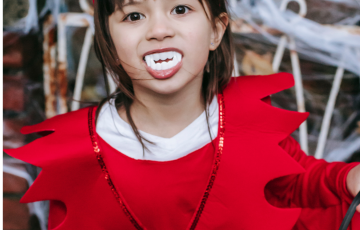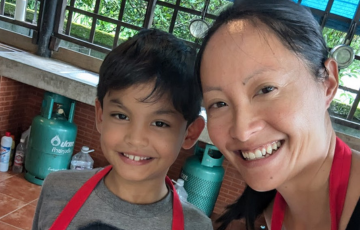Here you will find information on caring for your 6-month to 3-year-old child. Healthy physical, emotional, and mental development in your child’s toddler years give her the best start in life. These first years last forever.
Helpful tips:
- respond to your toddler’s cues – comfort, cuddle, listen, soothe and talk to them as often as possible
- as your toddler grows, you will need to introduce nutritious solid foods into their diet
- take your toddler to visit your doctor and public health nurse for regular checkups and immunizations
- select quality, nurturing child care
- give your toddler safe environments to explore
- provide age-appropriate toys for your child and play with them - playing is how your child learns
Nutrition for Young Children
Healthy eating habits begin when a child is young. Your child learns by watching you, so sit down and eat healthy family meals with your child as often as you can.
- breastmilk is good for young children, even in small amounts
- Health Canada recommends breastfeeding until age 2 years and beyond
- breastmilk reduces your child’s risk of infections and of being overweight later in life
- offer your child three meals and two to three snacks at regular times each day
- let your child learn to eat by feeding themselves
- your child knows when they are hungry and when they are full - let them decide how much to eat or whether to eat
- avoid or limit juice to ½ cup per day
- juice and juice “drinks” are full of sugar that can cause tooth decay
- juice can also make your child too full for meals and snacks
- some foods are choking hazards such as nuts, grapes and hard raw vegetables - these foods can be made safer by chopping or shredding
- always stay with your child when they are eating or drinking, and make sure they are sitting down while consuming food or drink
Parenting
Your toddler’s brain is still forming the basic connections of how they will learn, think, feel and experience the world. Caring, nurturing, and loving attention in the first few years helps your child develop a healthy brain that will last for the rest of their life.
- from the beginning, every child has her own personality and temperament
- nurturing your child’s individuality and strengths will help them develop their best self
- watch for and respond to cues that tell you what your toddler needs - rest, a hug, reassurance, food, a walk outside, loud play, quiet time
- talk, sing, and read to your child as often as possible
- Cuddle and hug him often
- physical affection helps your toddler grow
- regular routines and rituals help shape your toddler’s trust, expectations and behaviour
- your toddler will respond best to discipline that is calm, fair, and respectful
- physical discipline can cause serious, irreparable physical, mental and emotional harm to your child
Learning about child development can help you determine realistic expectations for the development and behaviour of your toddler.
Emotional Health
It may seem strange to talk about toddlers and stress, but the way a toddler learns to handle anxieties and fears now will make a blueprint for how they will develop emotionally into adulthood. There are many ways you can support healthy emotional development.
- establish routines for feeding, bathing, and napping
- toddlers cared for in an environment with regular routines experience less stress
- nurturing and soothing attention during the first years set the foundation for a child’s ability to handle normal stress and anxiety
- each time a toddler is soothed it strengthens the connections in the brain that help them learn to calm themselves
- recognize that even very young children have their own temperaments
- respond to the cues your child is giving you about what they need to feel safe and loved
- consider how your parenting style interacts with your child’s personality
Learning
Toddlers learn by watching, exploring, and imitating the world they live in. A loving, nurturing relationship between you and your child is the best environment for a child to learn. You are your child’s first and best teacher.
- talking, singing, listening, and reading to your child helps their brain grow and teaches language skills
- playing is your toddler’s work - it's how they learn
- play with your child, provide age-appropriate toys and find opportunities for them to play with other children
- your toddler learns from watching the people around them
- they like to imitate what they see
- be aware that they will pick up your behaviours and habits
- be selective about what your child watches on TV and how long they watch each day
- praise and encouragement teaches your toddler about acceptable and unacceptable behaviour
- as your toddler grows, encourage them to make independent choices
- allow your child chances to develop new skills and confidence by doing things on their own – like getting their shoes, brushing their teeth, drinking from a cup, etc.
Social Skills
Your toddler lives in a “me-centred” universe. In many ways, their behaviour is a survival mechanism designed to make sure they get what they need to survive and thrive.
Toddlers are not yet able to think ahead or remember consequences; nor are most toddlers able to share, empathize, or control their impulses. You can begin to build the foundation for the development of these social skills, but it is wise to keep your expectations for “good” behaviour reasonable.
- language and communication skills will form the basis of your child’s relationships with other people
- you can help your toddler develop social skills by responding to body language and attempts at talking
- encourage the development of speech by chatting, singing, reading, and listening to your child
- strong attachments to family members help your toddler feel safe and loved - this sense of security is very important for building the connections in your toddler’s brain that support healthy social development
- your toddler will not be able to control impulses - changing the environment is the most effective way to change a toddler’s behaviour
- if your child throws sand, remove them from the sandbox
- if your child refuses to stop yelling, leave the restaurant
- establishing firm limits and reasonable consequences may not ensure the behaviour you want, but it can help your toddler begin to recognize your expectations



